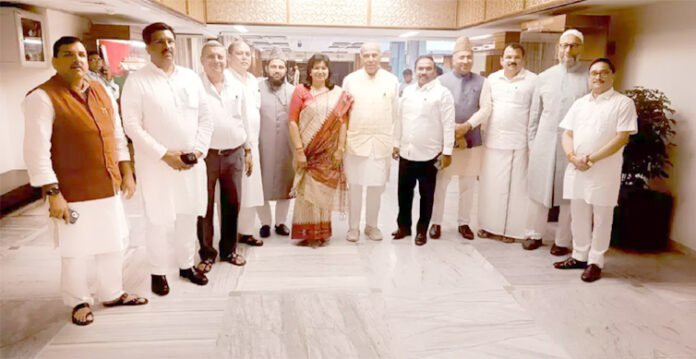The Joint Parliamentary Committee (JPC) has approved 14 significant amendments to the draft version of the Waqf Amendment Bill, which was tabled in the Lok Sabha in August 2024. These changes, aimed at updating the 1995 Waqf Act, have stirred a mix of support and opposition, reflecting deep political divisions.
One of the most notable amendments is a provision that clarifies the role of non-Muslim members in waqf councils at both the state and national levels. The original draft of the bill mandated the inclusion of two non-Muslim members, but the JPC has now proposed that ex-officio members, who could be Muslim or non-Muslim, be included. This change ensures that waqf councils will have at least two non-Muslim members and potentially more if other ex-officio members are also non-Muslim.
Another key change involves delegating the responsibility of determining whether a property qualifies as ‘waqf’ to a state-nominated officer, replacing the original proposal that assigned this authority to the District Collector. This shift aims to decentralize decision-making, but has sparked concerns among some lawmakers, particularly from the opposition.
Also Read:All Opposition Members Suspended from Parliamentary Panel on Waqf Amendment Bill
The JPC has also decided that the law will not apply retrospectively to properties already registered as waqf. This decision has raised questions, especially from Congress leader and JPC member Imran Masood, who pointed out that around 90% of waqf properties are unregistered, making this provision potentially problematic.
Additionally, a new proposal by BJP MP Tejasvi Surya requires individuals donating land to waqf to demonstrate that they have been practicing Islam for at least five years and confirm that there is no fraudulent intent involved in the dedication of the property. This requirement has raised concerns about its potential to discriminate and complicate the donation process.
The 14 approved amendments are part of a broader set of 23 proposals put forward by members of the ruling BJP and its allies, while 44 proposals from opposition MPs were rejected in a vote that largely followed party lines. Opposition members have criticized the changes, accusing the government of using the bill to infringe upon religious freedoms and undermine minority rights.
AIMIM leader Asaduddin Owaisi and Trinamool Congress leader Kalyan Banerjee have both described the amendments as a “direct attack on freedom of religion.” They, along with other opposition leaders, argue that the bill violates constitutional protections, particularly Articles 15 and 30, which guarantee the right to practice religion and protect the rights of minority communities to manage their institutions.
The JPC is expected to formally accept the 14 changes on January 29, with the final report due for submission by January 31. The committee’s original deadline of November 29 was extended to February 13, the final day of the Budget Session.
The Waqf Act, originally passed in 1995 and last amended in 2013, regulates properties donated for religious or charitable purposes under Islamic law. Supporters of the amendments argue that the changes aim to empower Muslim women who have been disadvantaged under the previous provisions of the law. However, critics warn that the amendments may disproportionately affect the Muslim community and could undermine constitutional guarantees.
As the bill moves toward its final stages, it is clear that the debate over its provisions will continue to intensify, with both sides presenting strong arguments for their positions. The outcome of this contentious discussion will have significant implications for the future of waqf governance and the rights of minority communities in India.
(This story is sourced from a third-party syndicated feed. Raavi Media takes no responsibility or liability of any nature. Raavi Media management/ythisnews.com can alter or delete the content without notice for any reason.)


